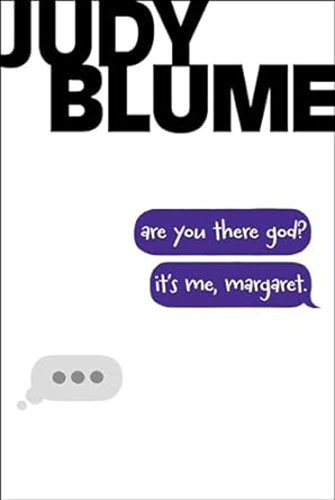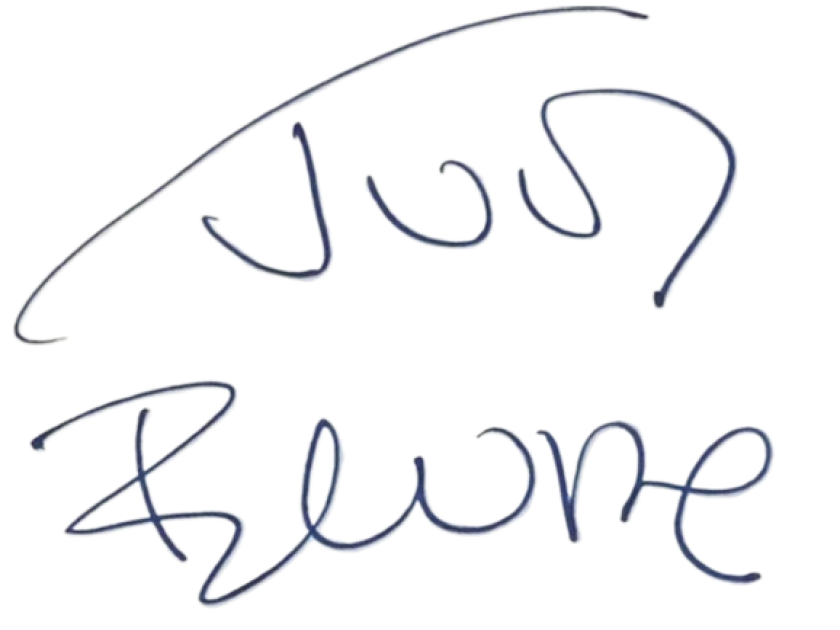
Dag21902190, CC BY-SA 4.0, via Wikimedia Commons
A few weeks ago, we asked you, the JBC community, to weigh in on the Judy Blume books that most affected you. We were elated to receive so many responses — and surprised to see a number of overlaps. Read on to discover which of Blume’s books you should (re)read first. And be sure to check out our inspiration for this call: Rachelle Bergstein’s newly released The Genius of Judy: How Judy Blume Rewrote Childhood for All of Us!
“Margaret was a seminal book in my life. I read it probably when I was about nine or ten years old. Though I recall I had NO idea what she was talking about with the pads and belts and whatnot (gulp, glad that has changed!), I so related to that desperate feeling of wanting to grow up while at the same time just being wholly confused and trying to figure out what LIFE was.” —Melanie, Georgia
“Although I had learned about periods from my mom, and a little from school, nobody really discussed the social impact of puberty. I grew up in a very small town with the same group of girls from kindergarten through high school; we were fairly isolated and took our cue not to discuss such matters with the few popular girls. Thank God for my girlfriends from temple, who were more open to talking about our periods, boys, life, etc. We all read Are You There God? It’s Me, Margaret and discussed it at length. We all had our period supplies ready and told each other the moment it happened! It was so wonderful to have a group of young women who could support each other through those tricky days of early womanhood. We loved that Margaret was exploring Judaism and related to her wonderful grandmother, whom we all adored. We joked about “We must, we must, we must increase our bust” while still nervous about having boys notice our changing bodies. Margaret and her friends made it all seem normal. Are You There God? was our teen Bible.
I got my first period one week before my bat mitzvah. I became a woman in so many ways in such a short amount of time. It was scary, exciting, and somewhat overwhelming, and yet I felt prepared thanks to Judy Blume. When I became a high school English teacher, I was saddened to learn that the book had fallen out of favor as old-fashioned. I bought numerous copies and had them in my classroom library. The girls ended up loving the book, and I am happy to report every copy was ‘permanently borrowed.’ ” —Robyn, California
“Since childhood, books have been my nourishment and dependable companions. I spent my grade-school summers bicycling to the Kings Highway branch of my Brooklyn library. I actually worried that I had run out of good reading material whenever I completed a good book. To this day I read and reread the final chapter slowly, savoring it as if it’s the last book on Earth.
As a preteen, Are You There God? brought me a whole new level of author appreciation after all the Nancy Drew, Hardy Boys, and other fun and easy but milquetoast books I had grown up on. Science fiction and historical fiction caught my interest at that time too (to this day my faves!). But Judy Blume’s open writing spoke to me as no other had, allowing me to realize that everything I was thinking and dreaming about was natural, and that an enormous, never-ending world would always be at my fingertips as I moved from YA to adult literature.” —Miriam, New York
“I remember discussing with my childhood friends, Jewish and non-Jewish, what it felt like to have so many questions about life.” —Robyn, Connecticut
“I related to Are You There God? It’s Me, Margaret because it tackled moving, puberty, and finding an understanding of oneself in an interfaith household. Judy Blume’s books made me feel safe, and understood, and like I wasn’t the only person to have gone through everything that was being thrown my way. Her characters were my friends when I was moving schools and hadn’t found my own yet. Even just thinking about this is making me tear up right now! I still hold these stories so dear, and I can’t wait to share them with my future kids.” —Julia, Canada
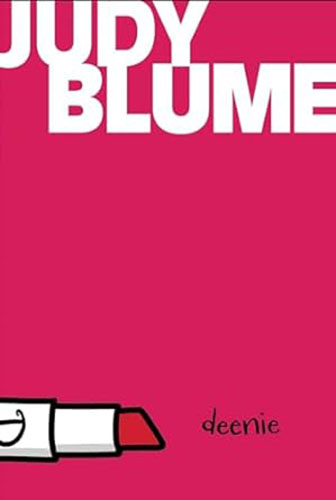
Deenie (1973)
“I read Deenie as a child and recently revisited it. The book follows thirteen-year-old Deenie after she is diagnosed with scoliosis. I, too, received this diagnosis at thirteen, and underwent corrective spinal surgery two years later. Rereading the book as an adult, I realized how much Blume got right: the strangeness of being fitted for a brace, the dreadfulness of actually wearing it, the self-consciousness that comes with being in an unwieldy teenage body. I also appreciated the novel’s depiction of female pleasure, however brief it is. I’d bet that Deenie was one of the first children’s books to address both disability and sexuality.” —Kyra, Pennsylvania
“Honestly, it was not a positive impact. I had scoliosis and I found the whole book terrifying. I also did not understand the portrayal of masturbation and found it confusing and scary, creating more questions than it answered. It reinforced messages about beauty standards instead of offering me relief and insight into the oppression that I was experiencing.”
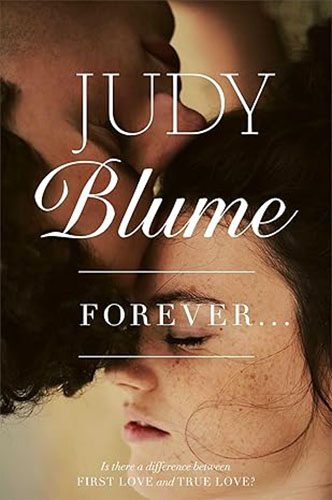
Forever … (1975)
“Reading Forever was like reading Everything You Ever Wanted to Know About Sex and Love. In 1976, at the start of sixth grade, my best friends and I read every word, turned every page together. The love story between Katherine and Michael was far off in our futures. One afternoon, at my house, we stumbled upon a word we didn’t know and ran downstairs to my mom in the kitchen, my friends screeching, ‘Mrs. Friedman, what’s semen?’ Four-plus decades later and we still burst into giggles over this memory.” —Jennifer, Israel
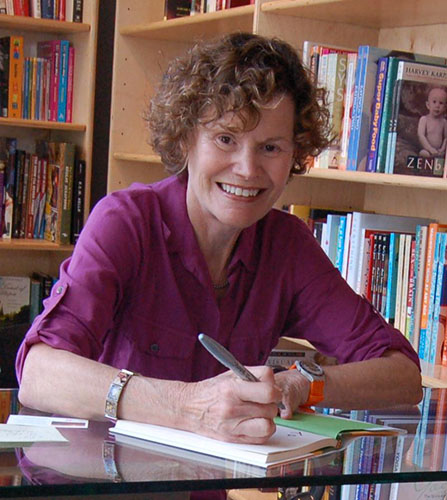
Photo of Judy Blume in 2009 (Carl Lender), Solid State Survivor, CC BY 2.0, via Wikimedia Commons
“Reading Judy Blume was sublimely comforting. Her characters felt how I felt, worried about what I worried about, and were real and smart and funny. I read and reread them. And it is hard to overstate how much it mattered to me that some of them just happened to be Jewish. All of these things made me feel less alone.” —Deborah, England
“When I owned a bookstore, Blume was one of the most requested and most suggested authors for younger readers. Her stories were so important for them!” —Suzanne, New York
“Her books made me realize that I wasn’t alone, that other young people were thinking similar thoughts as me and experiencing bullying, etc. It made me love reading even more. I also read Judy Blume’s autobiography, and hearing about her Jewish traditions helped spark my interest in Judaism. I read Anne Frank around the same time, so there were a number of influences. I eventually ended up converting to Judaism.” —Sara, Australia
“I always loved to read, but Judy Blume’s books described people who were familiar to me, a world that was accessible and well known. The conflicts were painful because they were real. And the books never ended with a neat bow, just with a sense that things that had seemed awful at one time had a way of fading away with time. Lessons are learned, people grow, perspective is gained.” —Ana, Arizona
